#Southern Portugal
Text

Vicente Mallio (Portuguese, 1832-1892)
Still life, ca.1801-1900
#you can now buy me a coffee no pressure#Vicente Mallio#portuguese#1800s#still life#art#fine art#european art#classical art#europe#european#oil painting#fine arts#europa#mediterranean#portugal#iberia#iberian peninsula#southern europe#buy me a coffee
3K notes
·
View notes
Text

Tarragona, Spain
2seeitall.ig
#tarragona#catalonia#catalunya#spain#cafe#travel#photography#original photography#city#street#places#wanderlust#europe#portugal#italy#southern europe#summer#tiles#architecture
36 notes
·
View notes
Text
















Portuguese Crisis of 1383–85
Battle of Aljubarrota: Portuguese forces commanded by John I of Portugal defeated the Castilian army of John I of Castile on August 14, 1385.
#King John I by Leopoldo de Almeida#São Jorge Castle#Lisbon#Lisboa#travel#Portugal#João I de Portugal#Praca da Figueira#Albufeira#Algarve#Atlantic Ocean#beach#Portuguese Crisis of 1383–85#Battle of Aljubarrota#John I of Portugal#won#14 August 1385#anniversary#Portuguese history#Ourique#original photography#summer 2021#architecture#Southern Europe#cityscape#landscape#seascape#vacation#tourist attraction#landmark
9 notes
·
View notes
Text

Coal-carriers in Lisbon, 1894-1896
#coal#labor#labour#workforce#black and white#photography#lisboa#Lisbon#portugal#history#1890s#19th century#women#people#portuguese#português#southern europe#europe#traditional clothing
10 notes
·
View notes
Text


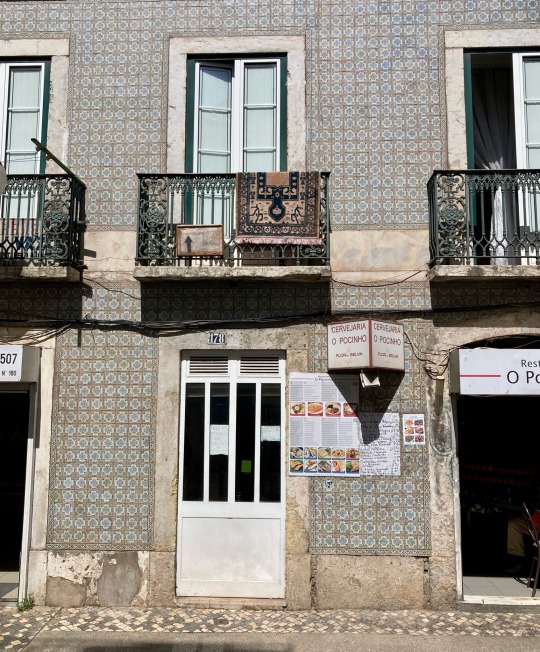

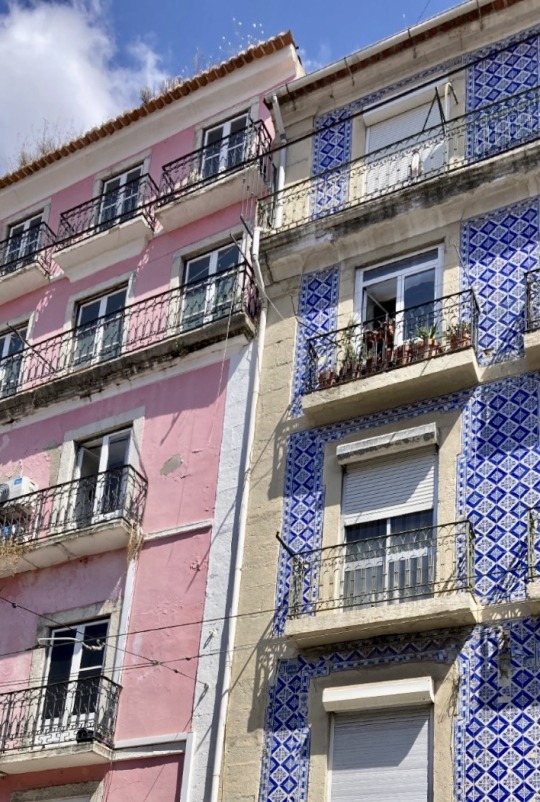

Lisboa, Portugal - Avril 2023
#Lisboa#lisbon#Lissabon#portugal#architecture#azulejos#springbreak#aesthetic#southern europe#meditarranean aesthetic#urbanart#walkable cities
64 notes
·
View notes
Text
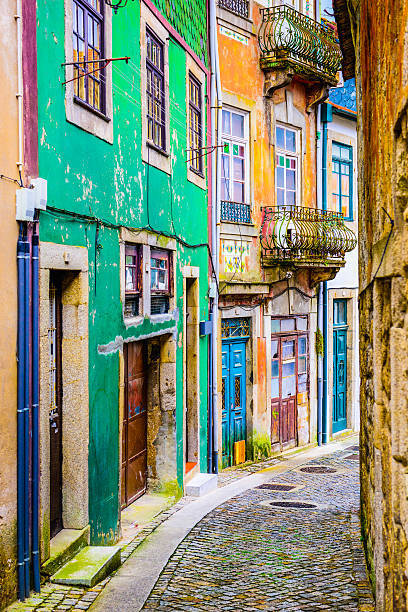
Porto, Portugal
#porto#portugal#europe#southern europe#travel#color#colour#colorful#colourful#dailystreetsnapshots#photography#street#streets#places#rainbow
8 notes
·
View notes
Text
one thing about being southern european is that you want to visit places but dont want to contribute to the tourism industry because you know how bad it is for the workers
#like GIRL i would so go to greece southern italy portugal etc if i could do so with a clean conscience#BUT I CANT bc i know how bad it is here#xarraire
29 notes
·
View notes
Text
Speaking as someone who has no option but the sky sports commentary, if you don't think they're biased you're wrong. I've watched F1 my entire life so just over two decades. The rights have changed from ITV to BBC to Sky in that time and the bias has always been there but as Sky Sports has the main English speaking F1 content in the age of social media, the bias is significantly more harmful.
Fans get to be biased. Commentary is supposed to be unbiased and impartial. Yes a driver's home country's commentary will undoubtedly be biased in favor of them and no commentary is completely free from bullshit takes, however the British commentary is held up as the "proper" one, it caters to more of the fan base than any other and is heralded as the home of F1. They continuously spread misinformation, are unable to remain impartial for the roughly two hours of races we get and are unable to not stir shit for views. British drivers and teams that have British drivers are held to a completely different standard.
And it's not just Red Bull or Max affected. I'm basically crying out for literally any info on the likes of Alex, Mick, Zhou, Yuki etc during race weekends but no I have to hear more about how Mercedes might actually have a chance at a win this time out which they've already discussed multiple times prior. Mercedes tend to get a free pass from criticism from the British commentators. Had any other team had "we deal with it in house" strategy in regards to punishing their drivers, the British commentators would absolutely lose it. But Toto giving stern talkings to Nico and Lewis whenever they crashed each other out (Spain 2016 for example) and to George after Imola 2021 (where he without question should've been held accountable by the FIA for hitting a fellow driver in the head after a crash when said driver's condition was still in question) is fine and goes by without question. Had say Ferrari pestered the FIA long enough in order to change rules and regulations (see changing the flooring regulations mid season this year or the pit stop rules mid season last year), they would be dogged by criticism and allegations of cheating. They've been silent about Mercedes doing the aforementioned. Meanwhile one of the alpha tauris or alpines or alfa romeos are starting from the pits but it's not deemed important enough to explain why until literally the last minute and we're getting underway. The way they talk about the likes of Checo and Yuki in particular have been disgusting and beyond insulting. It's far from impartial and it's nothing like real journalism. They criticize the FIA if they don't like a penalty (especially if it affects a British driver negatively) but, apart from Jenson Button, none of them saw the need to talk about the issue of the tractor on track during wet conditions with racing continuing under yellow flags at Suzuka. They often take quotes out of context to fit their narrative and often spread misinformation in order to uphold that narrative.
Some of you are too young or didn't watch F1 during the Schumi days or red bull era! Seb, but as someone who watched both and everything in-between and after, little has changed in regards to that bias. But as I've said before it's significantly worse in the age of social media. You're never free from trolls but spreading this bias as gospel truth leads to people believing it as such. The amount of harm that causes is horrific. I've seen racial abuse, death threats, body shaming, outright misogyny, and so much worse, directed at many drivers and many fans of said drivers both online and irl. They rightfully called it out at Austria. Yet they were almost entirely silent at Monza and at Silverstone. You don't get to cherry pick when it matters because it might fit your narrative because it always does matter and it is always wrong no matter who is directly affected or involved. No circuit or fanbase is perfect or free from bad eggs but to say that it was one driver's entire fanbase one weekend and that it was "just a few bad eggs" the next because it's a different driver's fanbase spreading abuse is clear evidence of inherent bias and double standards. You cannot pretend to be impartial while doing this.
I'm not going to sit here and say I'm without bias because I'm not. I don't have to be, however, because I'm a fan, not a commentator. They should be impartial for the length of the race weekend and be able to give an unbiased analysis on every driver and team. Can you honestly tell me that they are able to do so? I can set aside my biases and acknowledge if the drivers I support messed up or if a driver I'm generally indifferent to (I don't hate any driver, I don't get how people are so obsessed with hating on drivers they dislike) did well. I don't believe they can do the same, if they ever could because they've gone unchecked for years.
Also Sky Sports is the channel that used horrific crashes in ads to wish people a merry Christmas last year. They pulled the ad after rightfully receiving heavy criticism but I don't know if they ever apologized for it. I personally doubt it.
#f1#formula 1#formula one#i don't know if i said what i wanted and needed to but anyways it's written#edit; one of the reblogs mentioned eurocentric bias rather than British bias and yes absolutely#it's definitely a pyramid like British on top then european then white non europeans and then non white non Europeans#still more complicated as Europe is insanely I don't know the right word#like the likes of carlos & nando aren't considered as kind of as worthy or as dignified as other european drivers#because they're from southern Europe aka the PIGS aka spain portugal greece italy#like Europe is insanely classist still#classist that's the word
60 notes
·
View notes
Text
i made a map in geoguessr with only the PIGS countries in it <3
#geoguessr#so the best countries in europe :)#for those who don't know. the PIGS countries are portugal italy greece and spain#southern europe supremacy 😌
6 notes
·
View notes
Text
Spain 2026, north africa 2027. Be there 🫵
#god I want to see that again so bad#solar eclipse#.txt#well the 2026 you could also be in russia Iceland or Portugal but#or Greenland#we’re gonna probably go to my moms hometown if we’re able to make the trip#so Spain would be our choice#plus the weather would probably be best there#and then 2027 is also gonna cut through the very southern tip of spain#but we’re already doing wishful thinking about going to Tunisia (almost 6 min of totality!!!) and then hop over to Italy and go to#my /dads/ family’s hometowns#anyway I really hope we can go to these im already addicted#also North Africa…… like a 6% chance of cloud cover#it’s practically guaranteed a successful trip
2 notes
·
View notes
Text
Spanish Iris / Lirio español

#spanish iris#lirio español#don't mind me#just knew about this flower yesterday#it's so beautiful#though it is usually a paler violet like colour#found in Portugal and Spain mostly#but also Corsica South Western France Southern Italy Algeria and Tunisia
5 notes
·
View notes
Text

Lisbon, Portugal 🇵🇹 - 📷 The City Skyline and the Tagus (Tejo) River
#Lisbon#Lisboa#Portugal#Almada#Seeing Europe#photo#photography#travel#Europe#travel photography#foto#fotografie#photos#Europa#city#cityscape#architecture#skyline#Tejo#Tagus#southern europe#architectural revival
0 notes
Text










The Treaty of Alcañices (Portuguese: Tratado de Alcanizes; Spanish: Tratado de Alcañices) was made in Alcañices between King Denis of Portugal and King Fernando IV of Castile on September 12, 1297. It reaffirmed Portugal’s possession of the Algarve and defined the modern borders between the two Iberian countries.
#Treaty of Alcañices#Tratado de Alcanizes#Tratado de Alcañices#travel#original photography#vacation#tourist attraction#landmark#architecture#cityscape#landscape#Portugal#Lisbon#Mediterranean Sea#Albufeira#Cabanes#Viveiro#Santillana del Mar#Atlantic Ocean#Sevilla#Mojácar#España#Spain#summer 2021#Southern Europe#12 September 1297#anniversary#Spanish history#Portugese history
10 notes
·
View notes
Video
youtube
Kamo Mphela - @PianoPeopleOfficial Live from @AfroNation Portugal 2024 | @beatport
#youtube#Kamo Mphela#Afronation#LiveSet#KamoMphela#Energetic dancers#energy from the southern hemisphere#Team SA#South Africa#Amapiano#dancers#dance challenge#sa#mzansi#AfroNation Portugal 2024#AfroNation Portugal#Portugal#summer 2024#music festivals#Europe#Euro#2024
0 notes
Text
The Rich, the Poor and Bulgaria! Money Really Can Buy You Happiness
— Published: December 16th, 2010 | Wednesday 16th August, 2023 | Christmas Specials | Comparing Countries
THE notion that money can't buy happiness is popular, especially among Europeans who believe that growth-oriented free-market economies have got it wrong. They drew comfort from the work of Richard Easterlin, Professor of Economics at the University of Southern California, who trawled through the data in the 1970s and observed only a loose correlation between money and happiness. Although income and well-being were closely correlated within countries, there seemed to be little relationship between the two when measured over time or between countries. This became known as the “Easterlin paradox”. Mr Easterlin suggested that well-being depended not on absolute, but on relative, income: people feel miserable not because they are poor, but because they are at the bottom of the particular pile in which they find themselves.
But more recent work—especially by Betsey Stevenson and Justin Wolfers of the University of Pennsylvania—suggests that while the evidence for a correlation between income and happiness over time remains weak, that for a correlation between countries is strong. According to Mr Wolfers, the correlation was unclear in the past because of a paucity of data. There is, he says, “a tendency to confuse absence of evidence for a proposition as evidence of its absence”.
There are now data on the effect of income on well-being almost everywhere in the world. In some countries (South Africa and Russia, for instance) the correlation is closer than in others (like Britain and Japan) but it is visible everywhere.
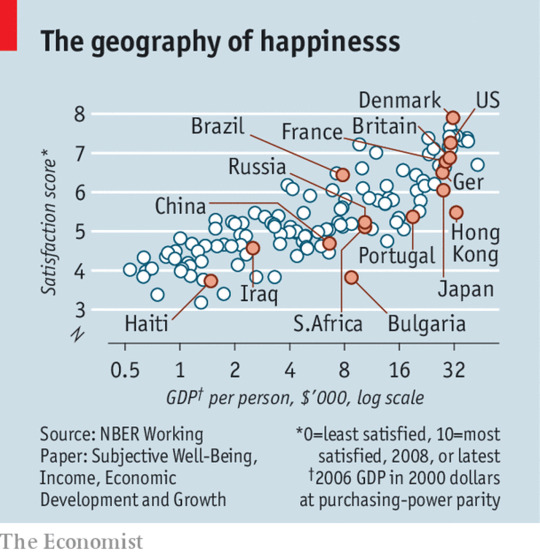
The variation in life satisfaction between countries is huge (see chart). Countries at the top of the league (all of them developed) score up to eight out of ten; countries at the bottom (mostly African, but with Haiti and Iraq putting in a sad, but not surprising, appearance) score as low as three.
Although richer countries are clearly happier, the correlation is not perfect, which suggests that other, presumably cultural, factors are at work. Western Europeans and North Americans bunch pretty closely together, though there are some anomalies, such as the surprisingly gloomy Portuguese. Asians tend to be somewhat less happy than their income would suggest, and Scandinavians a little more so. Hong Kong and Denmark, for instance, have similar income per person, at purchasing-power parity; but Hong Kong's average life satisfaction is 5.5 on a 10-point scale, and Denmark's is 8. Latin Americans are cheerful, the ex-Soviet Union spectacularly miserable, and the saddest place in the world, relative to its income per person, is Bulgaria.
— This article appeared in the Christmas Specials section of the print edition under the headline "The Rich, the Poor and Bulgaria"
#The Economist#The Rich | The Poor and Bulgaria#Money | Happiness#Europeans#Richard Easterlin#Professor of Economics | University of Southern California#Easterlin Paradox#Betsey Stevenson | Justin Wolfers | University of Pennsylvania#South Africa 🇿🇦 and Russia 🇷🇺#Britain 🇬🇧 | Japan 🇯🇵#Haiti 🇭🇹 Iraq 🇮🇶#Portugal 🇵🇹#Hong Kong 🇭🇰 | Denmark 🇩🇰#Ex-Soviet Union#Christmas Specials | Comparing Countries#Bulgaria 🇧🇬
1 note
·
View note
Text
Amarante on the Tamega River
In southern Europe, in the country of Portugal, on the banks of the Tamega River, you’ll find the charming small town of Amarante.
You can cross the Tamega River using the San Goncalo Bridge built in 1790. The granite Ponte de Sao Goncalo Bridge is a symbol of the town’s heroic defense against the French. This event is noted on a plaque, found at the southeastern end of the bridge. The bridge is…
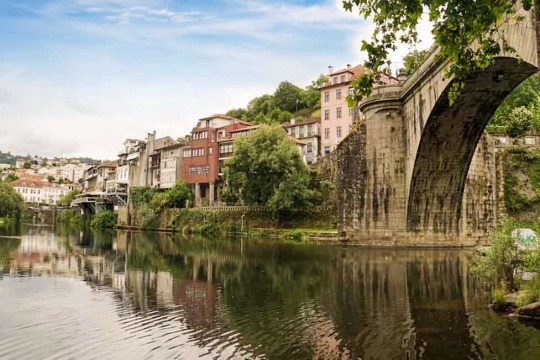
View On WordPress
1 note
·
View note